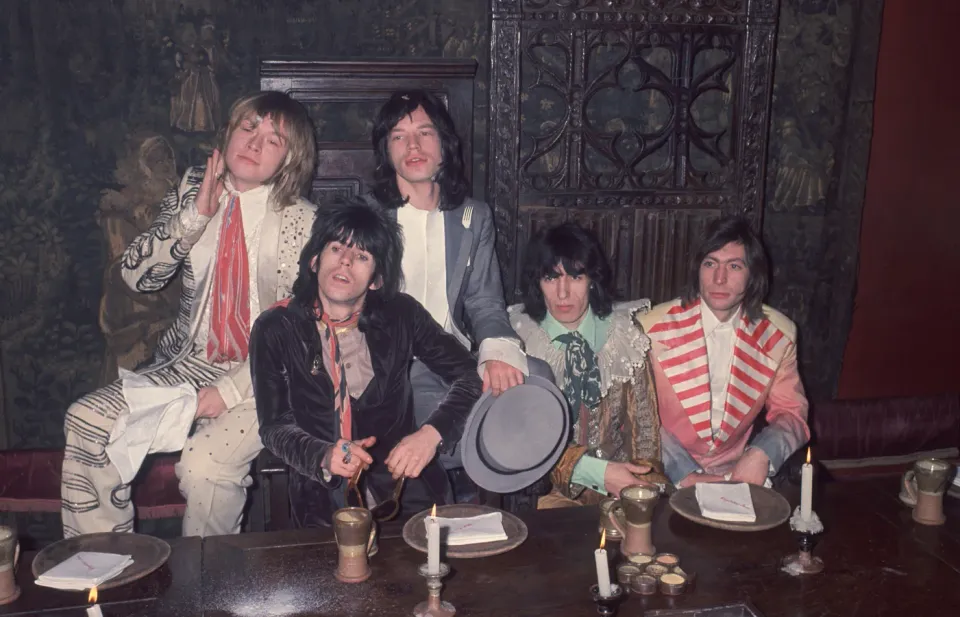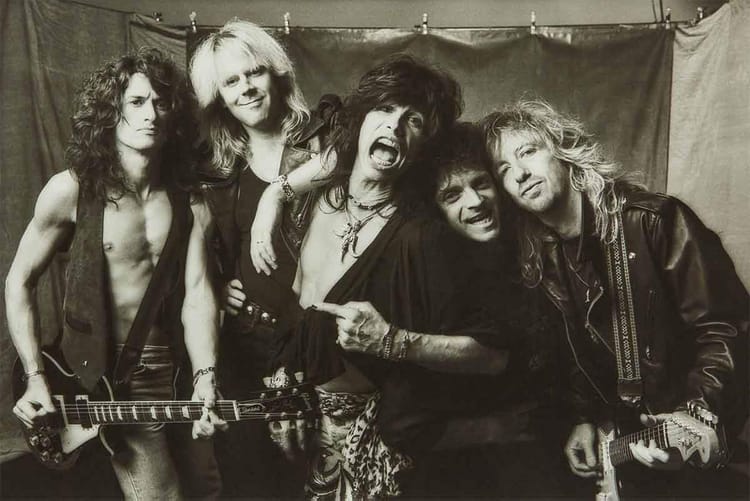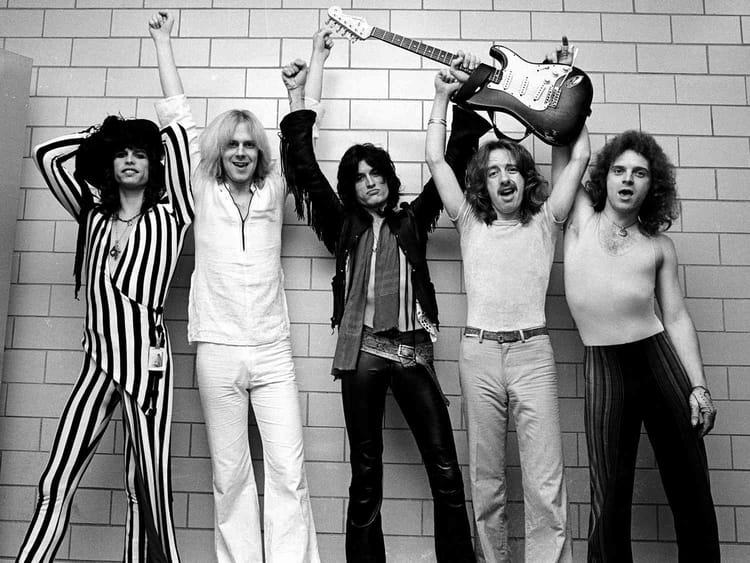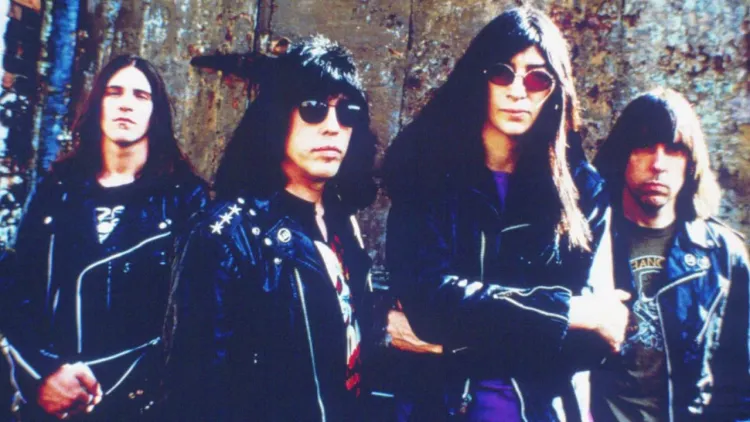The Rolling Stones, pt. 1: Anthony's Album Guide

Note: This is an update of a Tumblr post from six years ago. I’m only rating the US releases, cuz the post is cluttered enough as it is. My super-subjective rating scale is explained here. Part 2 is here.
England’s Newest Hitmakers (1964) 8
12X5 (1964) 7
The Rolling Stones, Now! (1965) 9
Out Of Our Heads (1965) 6
December’s Children (And Everybody’s) (1965) 7
Big Hits (High Tide And Green Grass) (1966) 8
Aftermath (1966) 7
Got Live If You Want It! (1966) 5
Between The Buttons (1967) 7
Flowers (1967) 8
Their Satanic Majesties Request (1967) 7
Beggars Banquet (1968) 9
Through The Past, Darkly (Big Hits, Vol. 2) (1969) 8
Let It Bleed (1969) 9
Get Yer Ya-Ya’s Out! (1970) 6
Sticky Fingers (1971) 6
Hot Rocks 1964-1971 (1971) 6
More Hot Rocks (Big Hits & Fazed Cookies) (1972) 6
Exile On Main St (1972) 9
Goats Head Soup (1973) 5
The Rolling Stones were five kids from outside London who would mail-order albums from Chicago, cover the songs at clubs, and buy more albums with the profit. Though hard-R&B purists compared to those four famous kids from Liverpool, the Stones similarly had cute outfits, cute haircuts and you could still dance to them. Mick Jagger, singer, was hammier and more openly erotic than any of the Beatles. Keith Richards, rhythm guitarist, was cooler. Brian Jones, lead guitarist, was also cooler (and blond). The rhythm section, bassist Bill Wyman and drummer Charlie Watts, looked like they’d rather die than holler a Shirelles song from the back riser. Even if your dad enjoyed discussing economics like Mick, or jazz like Charlie, no one’s parents thought the Stones were harmless.
England’s Newest Hitmakers captures the band’s early enthusiasm, despite the taint of “Tell Me,” a juvenile attempt at songwriting, encouraged by manager/producer Andrew Loog Oldham for financial reasons. Allegedly intended as a demo, it’s an eye-rolling minute longer than everything else, and was also their first US Top 40. 12x5 features covers both more definitive (“Time Is On My Side,” “It’s All Over Now”) and less (“Under The Boardwalk”). Now! is the party band’s grandest stand, a compilation of UK album cuts constructed like a killer setlist, all bottom-heavy swing and snarling guitar. On the following ‘65 releases - “Tell Me” just over a year old - scathing, self-penned singles like “I Can’t Get No Satisfaction” and “Get Off Of My Cloud” considerably outshine the co-opts from the black hit parade. Once famous, Jagger was far better at leaning into his impudent sneer than emulating the sincerity of others. Big Hits (High Tides And Green Grass) pulls together the most potent originals and covers of this period, “Tell Me” buried at the bottom of side one.
The Stones sixty years ago, with it still not over now.
Aftermath is considered a major breakthrough for the band, thanks to Mick & Keith writing all the material, and Brian experimenting with sitars & marimbas & shit. Mick’s proud misogyny long kept me from celebrating this musical milestone for guys with lots of Flamin Groovies albums. But his imperious air, peaking on the aristocratic fantasy “Lady Jane,” is what makes their trend-hopping stand out from what rivals Bob Dylan and Ray Davies were up to. The Byrds and the Beatles might have been beaten Brian to the 12-string, but no one was as fanciful a prick as Mick. The bigger problem on Aftermath is “Going Home” clocking in longer than the three best deep cuts combined, an early sign that improvisation was not the Stones’ forte.
Got Live If You Want It! is indeed a live album if you want it, the novelty of its frantic, proto-metal bombast (required to hear themselves over the screaming) undercut by cymbal noise. Still chasing trends, Between The Buttons kicked off 1967 announcing the Stones’ brain trust loved Bob Dylan and had taken LSD. It’s their most whimsical, Wes Andersony album, with “Ruby Tuesday” only the most famous/annoying tribute to a manic druggie dream girl. Ironically, each side peaks with a jagged hop about words that rhyme with “shun.” Flowers, a grab-bag of UK album tracks and outtakes, is about as (in)consistent as anything else from this time, flinging from acoustic explorations of post-adolescent ennui like “Sittin On A Fence” to a humiliating cover of “My Girl.” But inclusions like “Lady Jane,” its shameless, spiritual sequel “Back Street Girl,” the snide Spectorisms of “Out Of Time” and the psychedelic Diddley exercise “Please Go Home” make Flowers a touch more engaging than their concurrent stateside LP statements.
Macho contempt + marimba = kids losing their minds.
1967 also found the band hounded by police and press for their brazen enthusiasm for drugs, with Jagger, Jones and Richards all receiving prison sentences soon thrown out on appeal (Wyman and Watts were respectively focused on diddling and doodling). This, plus Anita Pallenberg going to Morocco with Jones and leaving with Richards, led to a rather distracted recording act (Oldham, eager to avoid those coppers, had peaced out for America). The resulting psychedelic carnival Their Satanic Majesty’s Request isn’t without highlights (“2000 Light Years From Home” is as memorably eerie as “She’s A Rainbow” is euphoric), but between the mounds of mellotron, the insipid jams and Wyman getting past security for a song of his own, it was now undeniable that the Stones were following rather than leading.
Saving the day, at least musically, were producer/groove pocket enthusiast Jimmy Miller and Keith Richards, multi-tracking his strums and slides to new heights as Brian Jones slowly marimba’d off the scene (and soon the planet). Mick Jagger is still a self-impressed shithead on Beggars Banquet, but the fuller sound inspires richer fantasies. His meta-Dylan epics, hillbilly jokes and cocksman crowing achieve a grandeur both Dionysian and well-read. Through The Past, Darkly (Big Hits Vol. 2) culls the better moments building up to this breakthrough, most notably “Jumpin Jack Flash,” the droning strut of a single that announced their de-flower powering. I wish the chronology wasn’t so muddled (the ’68 lightbulb keeps flicking on and off), but the US version at least sticks to ’66 and later, losing the UK’s ’64 Arthur Alexander cover.
The Stones in '68: still dressin' crazy, not soundin' as lazy.
Let It Bleed affirms the Beggars sound as the new normal. Mick preens over the twang and chug, throwing doomsday and decadence in our faces with a giddy confidence that shook Don McLean and anyone else who remembered the Crickets. Flaunting their racial & sexual privilege, and reveling in roots that weren’t really theirs, Bleed is blues-based “rock” at its best and worst, demanding you give them their due or dismiss the genre entirely. Get Yer Ya-Yas Out!, released after the tragic shitshow that was the Altamont Festival and initially loaded with related relevance, is now another live album if you want it.
Everyone has their own bridge too far with these jerks, and I won’t pretend to know objectively when the irony and indulgence goes from audaciously gauche to merely gross. But Mick J’s slavedriver metaphors cross my personal line on Sticky Fingers’ opening song, and new hire Mick T’s Santana-esque soloing crosses it on the longest. The rest is solid blues-based arena rock from weathered stars determined to push forth after the horrors of Altamont and Allen Klein (the post-Oldham manager who somehow got the rights to their entire sixties catalog as a parting gift). But even without "Sugar" or the jam, it’d be hard for me to get too excited about the Stones making blues-based arena rock; it's a cheap commodity today. I wish the languid anthem “Sway” was an A-side compilation staple, though. It’s the most inspired, least merely professional thing here.
"Hey kids! Ever fantasize about being a plantation owner while doing smack? Yeah!"
(Speaking of compilations, Hot Rocks is a popular sum-up of the era they accidentally sold to Klein, too succinct at 21 songs. More Hot Rocks tries to fill in the cracks with two dozen or so more, including a side’s worth of early obscurities. It’s more charming, but still superfluous.)
The success of Sticky Fingers set a professional template they could follow until…well, we’re still waiting to find out. Thankfully, they were initially too zonked to stick to it. Instead, these nodding tax evaders tracked and jammed and tracked and jammed with pals in a French castle, each song’s line-up depending on who could make it in that day, with yet more overdubs thrown atop in LA. Exile On Main St. is a mix of diamond and rough they’d never be able to recreate - not the least because Jagger doesn’t get what the big deal is with this samey-sounding jamboree anyway. Like Mick, I generally prefer my classics short, hit-packed and sweet. But Exile is four luxurious sides of the Stonesiest Stones that ever Stoned: a shining swamp of sound with rich lyrical detail peeking out under the groove. It’s long, and low on hits, but hard to beat in the sweet department.
A decade into the game, critics begging them to wrap this ghoulish self-parody up already.
Despite a shocking drop in quality, Goats Head Soup isn’t a rebuke of the Exile aesthetic so much as an attempt by Jagger to give its jammy warmth a little focus (and a hit ballad about another girl they’re gonna miss). The music - only subtly banal until you notice how thin the lyrics are - doesn’t throw the baby out with the bathwater, so much as suggest the bathwater had real magic in it. The world still went crazy for the ballad, and some fans get excited about the album’s coda, where they finally say “fuck” a lot. I enjoy the brash “Doo Doo Doo Doo Doo (Heartbreaker)” and the first three or four minutes of “Coming Down Again" - the first, but not last time the voice of Keith Richards was a blessed relief.
In Part 2, we'll reveal if I still can't stand "Far Away Eyes."
Let It Bleed is at 29 on my Top 300 Albums of All Time, joined by The Rolling Stones, Now! (#61), Beggars Banquet (#95), and Exile On Main St (#150). I'm telling you this because I've found people are more inclined to discuss and share reviews if there's a quantitative element at the top or bottom they can easily debate. Prove me right! Direct correspondence, however, can be shipped off to anthonyisright at gmail dot com.




